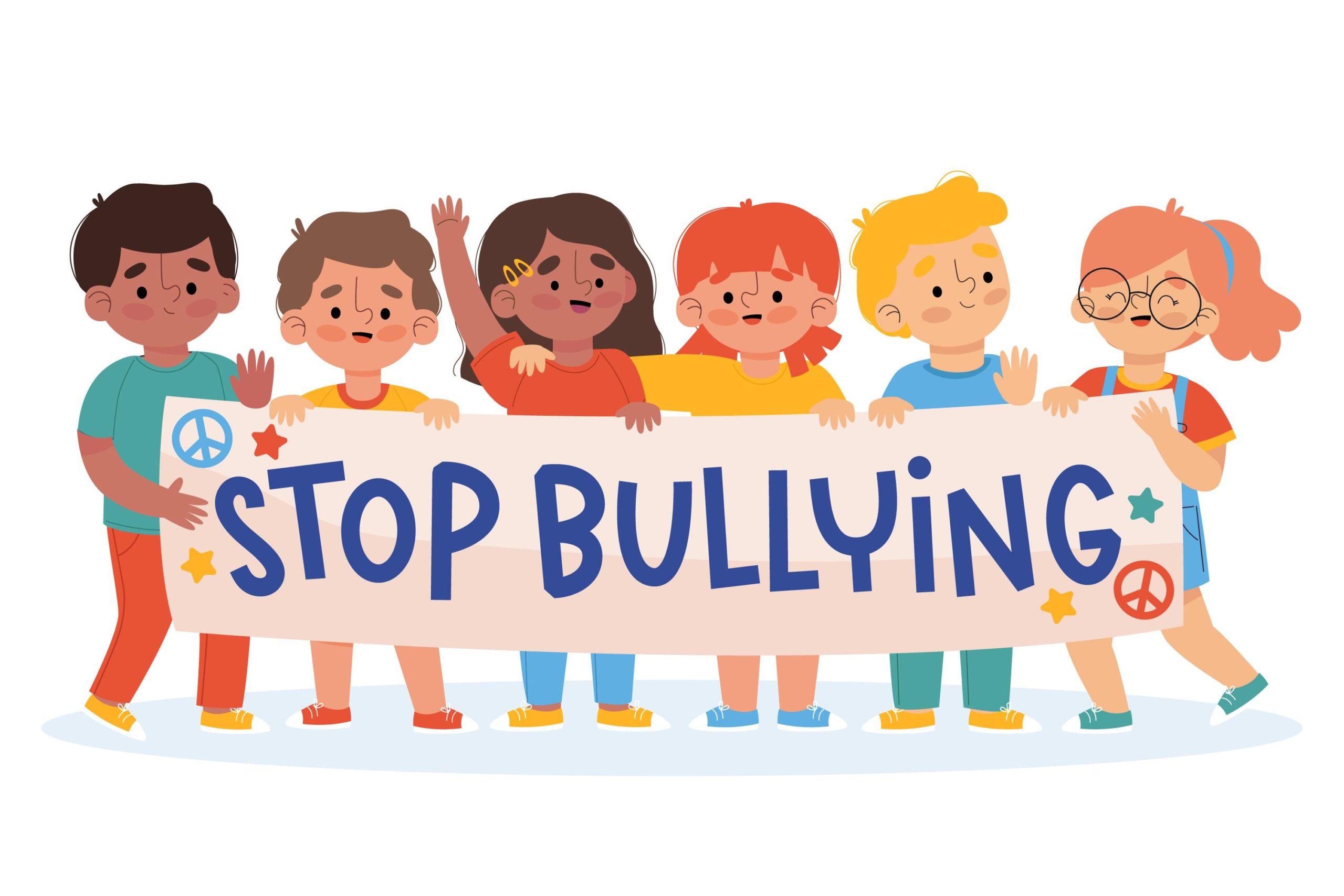8 Things Kids Can Say and Do to Stop Bullying

Neuroscience offers us conclusively that demonstrations of grace change the cerebrum. And that school-based programs explicitly incorporate the education of consideration. And sympathy into the scholarly day notes genuine decreases in harassment. What follows are 8 basic, down to earth, simple to-execute abilities you can train children to assist with stopping tormenting:
1. Retain a straightforward assertion
We realize that when children step in to stop bullying, an episode of mercilessness normally stops in something like 10 seconds, over half of the time(Hawkins, Pepler, and Craig, 2001). Sadly, a couple of projects show kids how to go to bat for other people.
My understudies let me know that one of the most often applied abilities I show them is the utilization of Bully Bans. Menace boycotts are short, to-the-point articulations intended to intrude on an episode of tormenting in its tracks without heightening the contention.
Menace boycotts consider that during unpleasant minutes, children’s cerebrums seldom concoct “supportive” comments. Rather, the hotness existing apart from everything else ordinarily starts inwardly charged, struggle energizing words and activities.
Menace boycotts are intended to be created with kids during non-upsetting minutes. Then, at that point, focusing on memory so that children can without much of a stretch access them when they are requiring. Viable Bully boycotts incorporate straightforward, non-passionate expressions, for example,
- Remove it, fella – that is not cool
- Hello, that is over the line
- No big deal either way
The key is in allowing children to conceptualize their own basic assertions. So their language feels good and normal to them. Then, grown-ups can help kids pretend to say their self-assured words in a certain, relaxed voice.
2. Steer the conversation in a different direction
A few youngsters will find it too unsafe to even think about expressing something during an episode of tormenting. Regardless of how agreeable they become with powerful wording. That’s completely justifiable and, surprisingly, sensible; again and again, courageous upstanders observe that when they offer grace and compassion for somebody who is being harassed, the forceful understudy promptly releases their savagery on them.
A few children have the certainty and social cash flow to face that challenge however for other people. An extraordinary procedure is to show them. How viable it tends to be to leave an episode of tormenting speechless by basically talking about something else.
For instance, a kid who needs to rapidly redirect the tension off of somebody being tormented can essentially ask out loud assuming somebody knows the date of the number-related test or how their March Madness section is going.
3. Dissipate the group
Another viable diffuser: get ready children to express something like, “Folks. We have to get to class before the ringer rings.” This is a speedy and simple method for dissipating the horde of spectators from whom a harasser is inferring social power and to quit tormenting on the spot.
4. Use humor
Show kids how powerful it very well may be to bring down the pressure of a tormenting circumstance. By making kids giggle. Make a quip, accomplish something amusing, share an image, or raise an interesting pet video. There are loads of ways mindful, empathic children can utilize humor to diffuse a strained circumstance and ease the heat off of a weak understudy.
5. Stand with the individual being tormented
For those minutes when verbal mediations like Bully Bans, interruptions. And humor won’t work, energize your young person(s) to just stroll over and stand near an individual who is being bullied. Often, simply the demonstration of silently remaining with a weak individual can be to the point of changing the disposition and stop bullying. It additionally lets the individual being tormented realize that the person in question isn’t the only one.
READ ALSO: https://articlebelt.com/tips-on-how-to-deal-with-your-anxiety/
6. Connect afterward
Uplifting news: On-the-spot procedures to stop tormenting are profoundly effective.More great news: if the open door is missed, everything isn’t lost! Teach kids that when they can’t intercede at the time, the endeavors they make to offer grace and sympathy not long after an episode of bullying can likewise have a critical effect.
Urge children to make time later in the day to converse with a companion who has been forced to bear cruelty. Invite the understudy to spend time with you at lunch or sit with you on the bus. Send him a well-disposed text. Message her via virtual entertainment.
7. Express compassion
One more successful method to stop bullying offering grace and sympathy to an understudy who is feeling alone. Is to find them later in the day and let them know that you are truly heartbroken about what happened. The force of this straightforward demonstration of looking an individual person in the eye and telling them that what befell them likewise tormented you can’t be put into words.
While they are grinding away, urge children to let the youngster know that he is great and doesn’t merit being dealt with badly. This straightforward demonstration of kinship and sympathy can have a significant effect.
8. Find support
Bullying is in with causing an individual to feel alone. By the upper rudimentary and center school years, many children now accept that their life will possibly deteriorate assuming they tell a grown-up they are being tormented, guessing that they will be known as a “blabbermouth” (and more awful!) and further corrupted for their demonstration of arriving at out. This is essential for the fundamental m.o. of a kid who menaces; making this dread is the manner by which they keep different children disconnected and feeble.
One thing observers can do to offer grace and stop bullying is to be the one to carry make a difference in a grown-up’s attention. This eases the pressure off of the tormented understudy in a major way.
Encourage children to consider cautiously who they go to for help, as not all grown-ups help equally. They ought to make certain to pick somebody who they accept is fair and will involve circumspection in their intercessions. So as not to create new issues for a harassed student.
A reliable grown-up can attempt to maintain school norms of well-being and respect for all understudies while likewise tending to the circumstance in a manner that keeps it from repeating.




